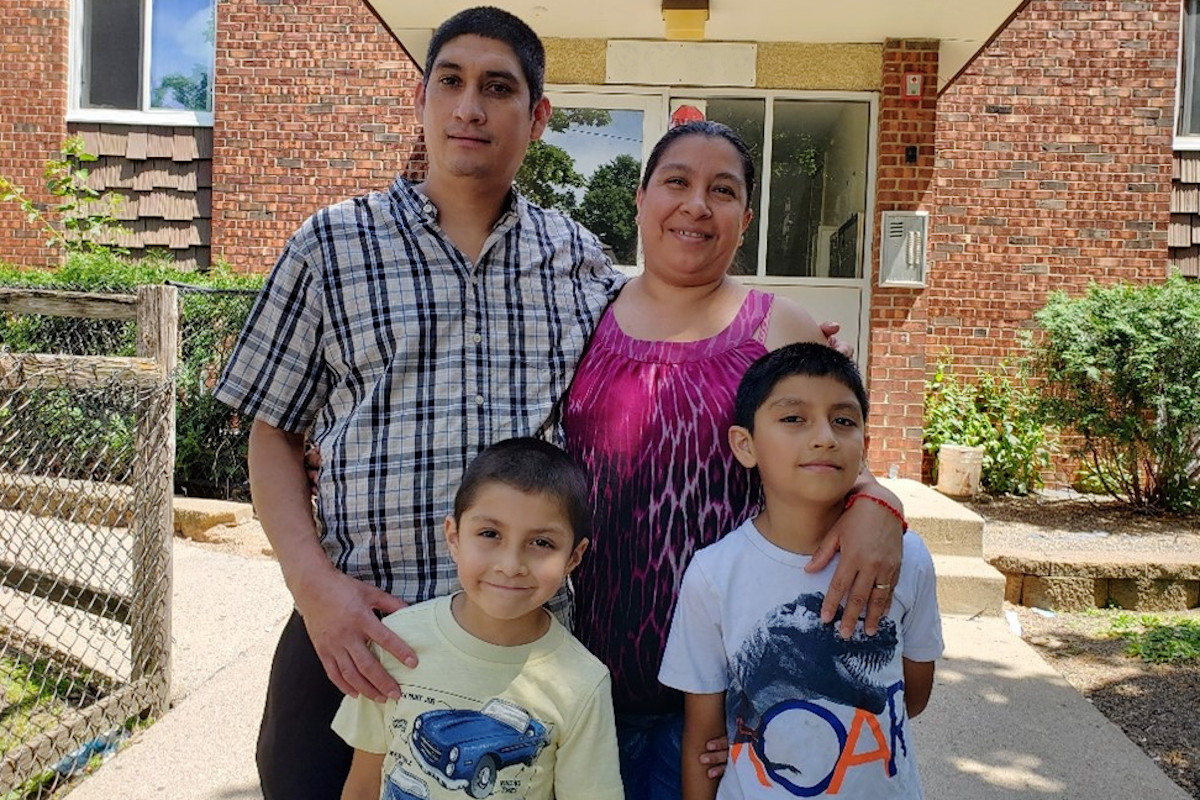
Located in the heart of Minneapolis, Incarnation Catholic Church serves a large Latino community that’s been especially hard hit by the pandemic. “We have a COVID funeral once every 10 days,” says pastor Fr. Kevin McDonough. “Many of our people work at ‘essential’ jobs. With insufficient protections, they’re more subject to infections.”
To many of Incarnation’s low-income families, the COVID-19 economy has been nearly as devastating as the virus. For Jose,* a father of two, the pandemic put a sudden end to the restaurant jobs he and his wife relied on to pay their rent and feed their children.
When the virus closed down the childcare center where Maria* worked, the mother of six began selling sandwiches to mechanics at a nearby garage. She lost that income when nearby social justice protests turned violent and destroyed local businesses.
Teresa* has also experienced the double whammy of a pandemic followed by civil unrest. She is waiting to hear if the sandwich shop where she worked will reopen.
Incarnation Uses MCRF Grants to Support Parish Families
In March when the Catholic Community Foundation of Minnesota (CCF) began to raise money for the Minnesota Catholic Relief Fund (MCRF), everyone knew the needs arising from the pandemic would be great — even if they didn’t yet know what would be most needed. Some MCRF grants helped stabilize operations at parishes and schools. At Incarnation, MCRF grants were used to directly support parish families.
On the eve of the state stay-at-home order, Incarnation’s Latino leadership identified the needs they expected would become most urgent. They prioritized the basics — food and rent — and the parish immediately mobilized to offer food assistance. To help parishioners at risk of eviction, parish leadership applied for an MCRF grant.
Since April, CCF has awarded Incarnation three MCRF grants totaling nearly $30,000 to provide parishioners rent assistance. The parish’s program, called 1+1+1, is based on the idea of shared sacrifice: the tenant pays one-third of the rent; another third is provided by the parish, funded in part by the MCRF; and the landlord is asked to forgive the remaining third. Incarnation’s 1+1+1 program provides support for up to four months and will help unemployed parishioners remain in their homes after the governor’s ban on evictions expires.
With the help of the MCRF, the families of Jose, Maria, and Teresa — along with dozens more — were able to remain in their homes. “When someone has been living under the threat of becoming homeless, and then finds their housing is stabilized, the extraordinary relief is joyous to see,” says Fr. McDonough.
Essential to Our Faith: Caring for the Stranger
Back in March, when Paul Rothstein donated to the MCRF in response to an appeal, he had no idea how the funds would be used. But it didn’t matter. “We try to make supporting our Catholic parishes and schools the cornerstone of our stewardship,” Paul says. “We know charitable organizations are struggling. Hopefully our contributions help to provide a bridge to get them through challenging times.”
Paul and his wife Kathy have five daughters and live in Chanhassen. He owns a small business that has been largely untouched by the pandemic, and so far, his family has remained healthy. Paul recognizes his own good fortune and takes seriously his responsibility to help others in need.
“I was raised in a very Catholic family,” Paul says. “But for us, it’s less about doctrine and more about empathy and inclusion. It’s about asking yourself, ‘What’s the right thing to do?’”
Fr. McDonough agrees. “For Catholics, the way we love and serve the neighbor is a fundamental test. It’s the only test Jesus gives us: feed the hungry, visit the sick and imprisoned, care for the stranger. These are essential to our faith.”
*Last names have been withheld for privacy.
Parishioner stories provided by Steve Brandt, with translation assistance from Sister Margaret McGuirk, O.P.
